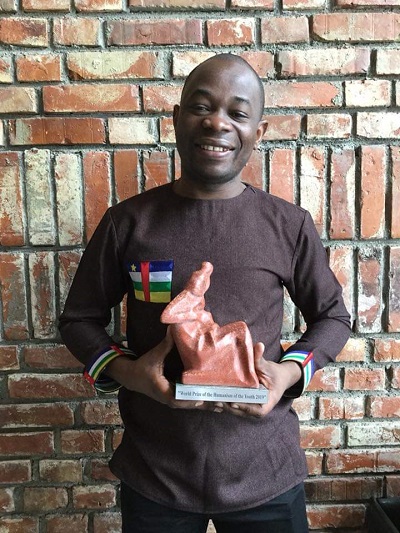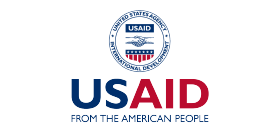Impact Stories & Blogs
Our team share their insights and perspectives on the impact our program is having on youth in East and Central Africa.

by Dr. Cedric Patrick Le Grand Ouanekpone, Central African Republic (CAR) , Cohort 1
Prior to joining YALI RLC EA, I was a young medical student and social change-maker. I was on the board of three local associations that I founded with my friends and colleagues to stand up for human rights, gender issues and access to quality education and affordable healthcare. When the war started in 2012 in CAR, I was committed with my team to treat patients in IDP camps, churches and mosques and to train young people helping them to refrain from violence. In that light, we produced a movie “The Dove” in Fatima’s church (one of the religious places in Bangui attacked by armed people) to raise awareness on peace and reconciliation. I helped more than 100 pregnant women to deliver babies in many IDP camps more often with derisory items. In January 2019, my work was rewarded by the World Prize for Humanism of the Youth in Macedonia.
When I joined YALI RLC EA family in 2015 as a part of the inaugural cohort, war and conflict were still going on in my home country. Due to this, booking a flight from Bangui to Nairobi, was an arduous task and I almost missed attending the program. YALI RLC EA experience was for me a great source of inspiration; it changed my paradigm, honed my leadership skills and sharpened my determination to contribute to change in my community. Meeting amazing young African change-makers, learning from their experiences, challenging oneself and trying to analyze issues in many angles are the benefits of YALI RLC EA.
Back home, my commitment to transform my community grew tenfold. I developed a mentorship program with some friends and we have mentored more than 800 young people. In this program, we equip them with self-development and social entrepreneurship skills, business plan writing and embracing leadership values. In addition, we target local youth associations through capacity building. In "Action Secours Espoir" (ASE, one of our local associations that targets children protection) we set up an Art Therapy program for kids living in IDP camps to help them forget the stigma and the trauma of war. 1,432 children were reached where more than 500 were orphans.
With other alumni from the Center and thanks to the YALI RLC EA Transformation Fund, we were able to target vulnerable young people in the 6th district of Bangui. 60 young people received training on social entrepreneurship and self-development before a practical step during which they raised chicks in poultry farming as an economic activity. Secondly, we set up a program called "This is CAR" based on the YALI RLC EA concept of "This is Africa". In one week, 100 young leaders responsible for youth associations throughout Bangui were gathered to focus on the CAR they envision. The last one was "CAR for Her" also based on the YALI RLC EA concept of "Africa for Her". This program designed for girls and women was performed in the rural area. More than 100 girls and women focused on girls ‘education, the place of women in business, politics and on gender-based violence issues.
In 2017 we created the CAR YALI Alumni association in which I held the position of the Development and Project Committee Chairperson. We performed an important program for all young people from CAR called “YALI Outreach”. In small groups, alumni traveled to all 16 districts of CAR to meet young people and performed community service, mentorship, English training, networking and to raise awareness on sexual and reproductive health. This program was implemented thanks to Alumni Engagement Innovation Funds from the US State Department and the support of local partners impacted directly over 20,000 young people. At the end of the program, a national youth camp (the first of its kind in the country since the war began) was organized in Bangui with all mentees coming from all the 16 districts of the country. An English club was set up in all districts and a wide network was created among young people living in the different sides of the country: a great factor of social cohesion in a country in need of peace and reconciliation.
I really believe that sustainable change comes from the grassroots where more energy is needed to transform and develop a community. Leadership is not only a question of a big mind but a question of being human first. There is not a better way to understand others and inspire them to awaken their giant if we are not human ourselves. Doing so, even a smile can transform and save a life. That is why I totally agree with former President Nelson Mandela who said: "Leadership is behavioral, not positional…”. A true legacy is the one which stays alive inside people.



